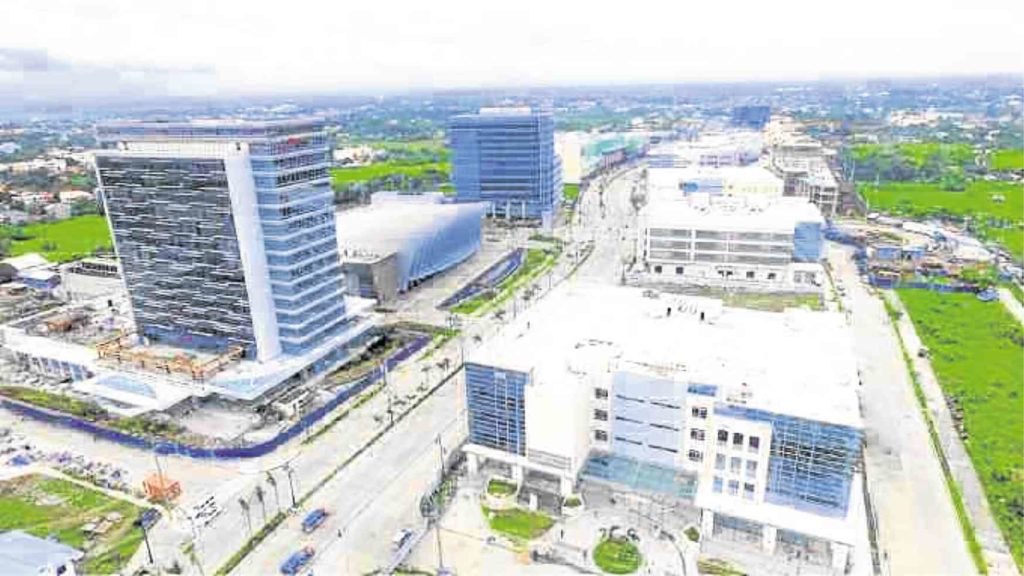Unlocking land values

Colliers is encouraging developers and locators to scale up their presence outside the country’s capital.
Property developers are urged to scale up their presence outside the country’s capital to take advantage of “thriving opportunities” presented by an infrastructure-led growth.
“Over the near to medium term, we see the Philippines sustaining robust growth on the back of the government’s infrastructure and decentralization push. Among the key economic segments that will benefit from the government’s thrust is property development,” explained Joey Roi Bondoc, manager for research at Colliers International Philippines.
Golden age of infrastructure
According to Bondoc, infrastructure implementation, coupled with the decentralization thrust of the Duterte administration, should spur the growth of the office, residential, retail, industrial, and the hotel and leisure segments.
“Moving forward, much of the country’s growth will hinge on ramped-up infrastructure spending, which should support the Duterte administration’s commitment to build crucial projects throughout the country,” Bondoc said in Colliers’ Flash Report issued Thursday.
“The ushering in of the ‘golden age of infrastructure’ also lends support to the government’s decentralization push which should unlock land values in areas outside of Metro Manila and stimulate business activities in the countryside. Given this, we recommend that developers zero in on the thriving opportunities outside of the country’s capital,” he further noted.
Emerging provincial hubs
According to Colliers, developers and locators alike should look into the different opportunities in emerging provincial hubs.
More specifically, it urged the business process outsourcing (BPO) firms—which are among the biggest occupiers of office space to date—to consider opening or expanding shops outside of the country’s capital.
“Given the current administration’s decentralization push, we believe firms should consider expanding in the provinces where the government intends to spur development by offering more fiscal and non-fiscal incentives and building crucial infrastructure projects such as airports, subways, and railways,” the report said.
Domestic tourism
Hotel developers, according to Colliers, should likewise zero in on the rising number of domestic tourists and the growing popularity of staycations by building two- to four-star hotels particularly in Iloilo, Cagayan de Oro, Bohol, Bacolod, and Davao whose regional airports are up for expansion and modernization.
Citing data from the Philippine Statistics Authority (PSA), Colliers said that Filipino households’ hotel and restaurant spending has been growing by 7.3 percent yearly over the past seven years, faster than the increase of other household spending subsectors like food and beverage, education, and clothing and footwear.
This, it noted, indicates that Filipinos continue to apportion a considerable fraction of their incomes to leisure-related expenditures. It similarly indicates that domestic travelers are likely to sustain the hotel demand in the country.
Residential, industrial spaces
Meanwhile, Colliers disclosed that horizontal residential projects continue to appeal among overseas Filipino workers (OFWs).
“Colliers believes that a significant part of the $31 billion in remittances projected to be sent in by OFWs this year will be set aside for Filipinos’ housing requirements. A survey conducted by the National Economic and Development Authority reveals that nearly two-thirds of Filipinos consider owning a medium-sized home as one of their key aspirations,” the report stated.
“Thus, we recommend developers to build socialized to affordable housing projects in provinces that are major sources of migrant workers and where developable land is relatively cheaper,” it further reported.
For industrial spaces, Colliers also urged property developers to look at “viable locations for industrial park development aside from the Cavite-Laguna-Batangas corridor to meet the rising demand for industrial space from current locators and Filipino conglomerates diversifying into manufacturing.”
Colliers pointed out that while fixed capital formation slowed down in the second quarter, the drop was offset by growth in exports.
It noted that the expansion of the country’s export base indicates a potential increase in demand for industrial parks and facilities.
“We see the demand for industrial parks and facilities being sustained by the expansion of existing locators such as British consumer product manufacturer Dyson and Taiwanese electronics firm Kinpo Group; Filipino conglomerates’ (e.g. Ayala Group and San Miguel Corp.) diversification into manufacturing; improvement of the Philippines as a regional manufacturing hub; and expansion of consumer base brought about by Asean integration,” it added.














